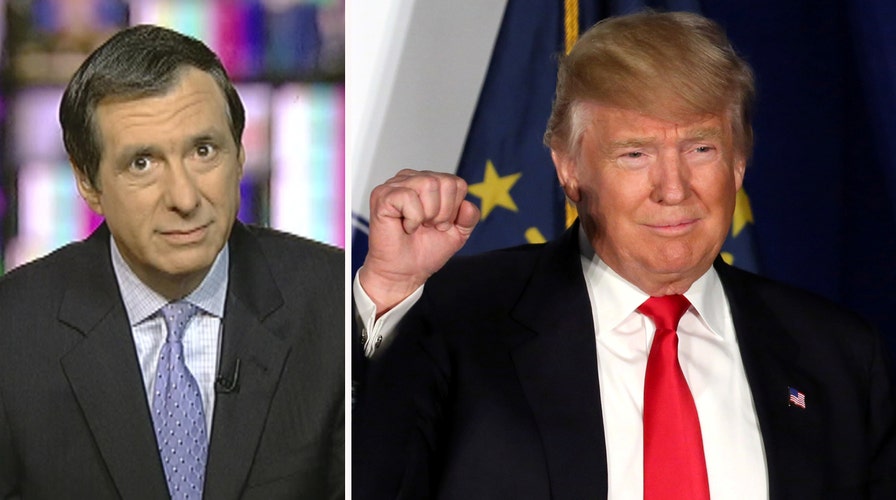Kurtz: Press dumps on Trump and his gazillionaires
'MediaBuzz' host Howard Kurtz weighs in on the press criticizing Trump's wealthy cabinet memebers
Donald Trump’s Cabinet is shaping up to be really, seriously, fabulously rich.
And that’s news.
But is it bad news?
Is it some kind of class-warfare plot by America’s first billionaire president?
Should the media automatically assume that these super-wealthy folks are on a mission to screw the middle class?
We’re starting to see such criticism bubble up from journalists and pundits who are presumably in far lower income brackets than the new Treasury secretary, former Goldman Sachs and hedge fund guy Steve Mnuchin; or the new Commerce secretary, Wilbur Ross (estimated wealth $2.5 billion), or the new Education secretary, Betsy DeVos, whose family co-founded Amway (estimated family wealth $5.1 billion).
Now it’s perfectly fair to look at their records, including past controversies in the business world. And it’s equally fair to say that Trump made Goldman Sachs a symbol of a rigged system—remember his focus on Hillary Clinton’s big-money speeches to the investment bank?—and is now tapping more than his share of Goldman people.
But the idea that this will be an administration of the rich, by the rich and for the rich?
Was that true of FDR or JFK, both of whom were born into elite families of great means? Obviously not.
The Washington Post starts out by questioning the team’s lack of government credentials:
“Many of the Trump appointees were born wealthy, attended elite schools and went on to amass even larger fortunes as adults. As a group, they have much more experience funding political candidates than they do running government agencies.”
Then comes the zinger:
“Their collective wealth in many ways defies Trump’s populist campaign promises.”
A University of Virginia faculty member is paraphrased as saying Trump and his lieutenants “won’t be able to draw on the same sort of life struggles that President Obama did, in crafting policy to lift poor and middle-class Americans.”
So rich Americans need not apply, because, in this teacher’s word, they would lack “empathy”?
A political scientist at Duke says that “when you put a bunch of millionaires in charge, you can expect public policy that helps millionaires at the expense of everybody else.” And Democratic Sen. Sherrod Brown, not surprisingly, says Trump will have “a billionaire and millionaire cabinet, with a billionaire agenda… to hurt the middle class.”
So is the reverse true? Was Bill Clinton, because he grew up with modest means in small-town Arkansas, out to soak the rich?
These questions don’t seem to come up in Democratic administrations. Obama’s Commerce secretary, Penny Pritzker, happens to have an estimated net worth of $2.5 billion.
But it’s becoming a hot media issue. Politico on “Trump’s Team of Gazillionaires”:
“Donald Trump campaigned as a champion of the ‘forgotten man’ and won the White House on the strength of his support among the white working class.
“So far, he’s stacking his administration with masters of the universe.”
Liberal columnist Paul Waldman:
“Donald Trump has named Steve Mnuchin — a Goldman Sachs alum and hedge fund manager — to be his secretary of the Treasury, in keeping with his repeated promise to take on Wall Street and the powers-that-be on behalf of the little guy.
“So can we stop pretending that Trump's campaign ‘populism’ was anything other than just one more con?”
For what it’s worth, Mnuchin told CNBC that there will be “no absolute tax cut for the upper class”—meaning any reductions would be offset by cutting deductions—and there will be a “middle-income tax cut.”
Now if the new administration does push a tax cut tilted toward the wealthy, is too cozy with Wall Street and slashes programs for the poor, the press should be all over that.
But right now, some of the coverage seems built on the assumption that anyone who’s rich is mainly interested in raiding the Treasury to help themselves and their well-heeled friends.





